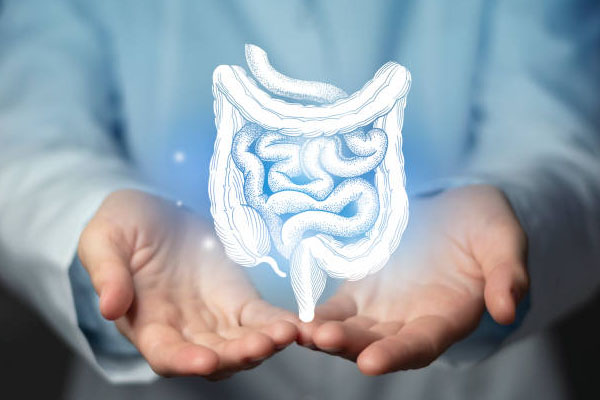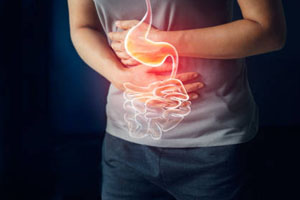Discover how to identify, prevent, and manage digestive problems with our comprehensive guide Learn about the signs, dietary choices, and lifestyle factors that support digestive wellness Find expert advice on probiotics, stress management, and when to seek medical attention for optimal digestive health
Common Digestive Problems
1. Acid Reflux and GERD
Understanding Acid Reflux
Acid reflux, also known as heartburn, occurs when stomach acid flows back into the esophagus, causing a burning sensation in the chest. It's a common digestive problem and often occurs after a heavy meal or when lying down. Gastroesophageal reflux disease (GERD) is a chronic form of acid reflux that can lead to more severe symptoms and complications.
Causes of Acid Reflux and GERD
1.1. Diet: Consuming acidic or spicy foods, fatty meals, and caffeine can trigger acid reflux. 1.2. Obesity: Excess weight can put pressure on the stomach, pushing acid into the esophagus. 1.3. Hiatal Hernia: A condition where part of the stomach pushes up through the diaphragm can increase the risk. 1.4. Smoking: Tobacco use can weaken the lower esophageal sphincter, allowing acid to flow back. 1.5. Pregnancy: Hormonal changes during pregnancy can relax the lower esophageal sphincter, causing acid reflux.
Symptoms and Complications
1.1. Common symptoms include heartburn, regurgitation, and a sour taste in the mouth. 1.2. Chronic acid reflux can lead to complications such as esophagitis, strictures, and Barrett's esophagus, which can increase the risk of esophageal cancer.
Preventing and Managing Acid Reflux
1.1. Dietary Changes: Avoid trigger foods, eat smaller meals, and maintain a healthy weight. 1.2. Lifestyle Modifications: Elevate the head of the bed, quit smoking, and avoid lying down immediately after eating. 1.3. Medications: Over-the-counter antacids and prescription medications can help manage symptoms. 1.4. Surgery: In severe cases, surgical intervention may be necessary to strengthen the lower esophageal sphincter.
2. Irritable Bowel Syndrome (IBS)
Understanding Irritable Bowel Syndrome (IBS)
Irritable Bowel Syndrome (IBS) is a common gastrointestinal disorder characterized by symptoms like abdominal pain, bloating, and changes in bowel habits. It is a chronic condition that affects the large intestine and can cause significant discomfort and disruption to daily life.
Potential Causes of IBS
2.1. Gut Motility: Abnormal contractions in the intestines can lead to symptoms. 2.2. Food Sensitivities: Certain foods may trigger IBS symptoms in some individuals. 2.3. Gut-Brain Interaction: The gut-brain axis plays a role in IBS symptoms. 2.4. Infections: Gastrointestinal infections can lead to post-infectious IBS in some cases. 2.5. Stress and Anxiety: Psychological factors can exacerbate IBS symptoms.
Types of IBS and Their Symptoms
2.1. IBS with Diarrhea (IBS-D): Frequent diarrhea is a primary symptom. 2.2. IBS with Constipation (IBS-C): Constipation and infrequent bowel movements are common. 2.3. IBS with Mixed Bowel Habits (IBS-M): Alternating between diarrhea and constipation occurs. 2.4. Unsubtyped IBS (IBS-U): Symptoms do not fit into the other categories.
Management and Treatment of IBS
2.1. Dietary Changes: Identifying trigger foods and following a low-FODMAP diet can help. 2.2. Medications: Antispasmodics, laxatives, and medications for diarrhea or constipation can provide relief. 2.3. Stress Management: Stress reduction techniques, such as mindfulness and relaxation exercises, are essential. 2.4. Probiotics: Some individuals find relief from IBS symptoms with probiotic supplements. 2.5. Behavioral Therapy: Cognitive-behavioral therapy (CBT) can help manage psychological aspects of IBS.

3. Constipation and Diarrhea
Understanding Constipation
Constipation is a digestive problem characterized by infrequent bowel movements or difficulty passing stool. It can lead to abdominal discomfort, bloating, and straining during bowel movements. Factors such as a low-fiber diet, dehydration, and certain medications can contribute to constipation.
Potential Causes of Constipation
3.1. Dietary Factors: Lack of dietary fiber and inadequate water intake can lead to constipation. 3.2. Medications: Some medications, such as opioids and certain antacids, can cause constipation. 3.3. Lifestyle: Lack of physical activity and ignoring the urge to have a bowel movement can be contributing factors. 3.4. Medical Conditions: Conditions like hypothyroidism and irritable bowel syndrome (IBS) can lead to chronic constipation. 3.5. Neurological Issues: Problems with the nerves in the colon can affect bowel movements.
Understanding Diarrhea
Diarrhea is a condition marked by frequent, loose, and watery bowel movements. It can be caused by various factors, including infections, food intolerances, and certain medical conditions. Diarrhea can lead to dehydration and electrolyte imbalances.
Potential Causes of Diarrhea
3.1. Infections: Bacterial, viral, and parasitic infections are common causes of acute diarrhea. 3.2. Food Intolerances: Lactose intolerance and gluten sensitivity can lead to diarrhea. 3.3. Medications: Some antibiotics and antacids can cause diarrhea as a side effect. 3.4. Irritable Bowel Syndrome (IBS): IBS can lead to diarrhea, especially in its diarrhea-predominant form. 3.5. Stress and Anxiety: Psychological factors can exacerbate diarrhea in some individuals.
Management and Treatment
3.1. Constipation: Increasing fiber intake, staying hydrated, and being physically active can alleviate constipation. In some cases, laxatives or stool softeners may be necessary. 3.2. Diarrhea: For acute diarrhea, staying hydrated is essential. Over-the-counter anti-diarrheal medications can help. Addressing the underlying cause, such as managing food intolerances, is crucial for chronic diarrhea.
4. Food Intolerances and Sensitivities
Understanding Food Intolerances and Sensitivities
Food intolerances and sensitivities refer to the body's adverse reactions to certain foods or food components. These reactions are different from food allergies and are typically characterized by digestive symptoms, such as bloating, diarrhea, or abdominal pain, after consuming specific foods.
Common Food Intolerances and Sensitivities
4.1. Lactose Intolerance: Inability to digest lactose, the sugar in milk and dairy products, leading to gastrointestinal symptoms. 4.2. Gluten Sensitivity: Non-celiac gluten sensitivity can cause digestive discomfort when consuming gluten-containing foods. 4.3. Fructose Malabsorption: Difficulty absorbing fructose can result in gas, bloating, and diarrhea after consuming fructose-rich foods. 4.4. FODMAP Sensitivity: FODMAPs are fermentable carbohydrates found in certain foods that can trigger digestive symptoms in sensitive individuals.
Causes and Mechanisms
4.1. Enzyme Deficiencies: Lactose intolerance is caused by a deficiency of the enzyme lactase. 4.2. Immune System Activation: Gluten sensitivity may involve an immune response to gluten, though it's not an autoimmune reaction like celiac disease. 4.3. Gut Microbiome: The gut microbiome plays a role in fermenting FODMAPs and causing symptoms in those with sensitivity.
Diagnosis and Management
4.1. Diagnosis: Food intolerances and sensitivities are diagnosed through dietary elimination and reintroduction or through breath and blood tests. 4.2. Management: Management typically involves avoiding trigger foods, following specialized diets (e.g., low-FODMAP or gluten-free), and addressing any nutrient deficiencies that may arise from restricted diets.
Common Symptoms
4.1. Bloating and Gas: A common symptom in lactose intolerance, fructose malabsorption, and FODMAP sensitivity. 4.2. Diarrhea or Constipation: Gastrointestinal symptoms can vary from one individual to another. 4.3. Abdominal Pain and Discomfort: Cramping and discomfort after eating trigger foods are typical symptoms. 4.4. Fatigue and General Discomfort: Ongoing digestive issues can lead to overall fatigue and discomfort.
5. Gallstones and Pancreatitis
Understanding Gallstones
Gallstones are small, hardened deposits that form in the gallbladder, a small organ responsible for storing bile. Gallstones can develop when there is an imbalance in the substances that make up bile, such as cholesterol and bilirubin. These stones can vary in size and can block the flow of bile, leading to various complications.
Potential Causes of Gallstones
5.1. High Cholesterol Levels: Excess cholesterol in bile can lead to cholesterol gallstones. 5.2. Excess Bilirubin: High levels of bilirubin can result in pigment gallstones. 5.3. Rapid Weight Loss: Quick weight loss, often associated with crash diets, can increase the risk. 5.4. Pregnancy: Hormonal changes and increased cholesterol levels during pregnancy can contribute. 5.5. Genetics: A family history of gallstones can raise your risk.
Symptoms and Complications of Gallstones
5.1. Biliary Colic: A sudden and intense pain in the upper right abdomen. 5.2. Gallbladder Inflammation: Inflammation of the gallbladder (cholecystitis) can lead to severe pain, fever, and nausea. 5.3. Pancreatitis: Gallstones can block the pancreatic duct, leading to pancreatitis. 5.4. Jaundice: Obstructed bile flow can cause yellowing of the skin and eyes. 5.5. Gallbladder Infection: In severe cases, gallstones can lead to a gallbladder infection.
Understanding Pancreatitis
Pancreatitis is inflammation of the pancreas, an organ that produces digestive enzymes and regulates blood sugar. Pancreatitis can occur as acute or chronic and is often linked to gallstones, heavy alcohol use, or certain medical conditions.
Potential Causes of Pancreatitis
5.1. Gallstones: Gallstones can block the pancreatic duct, leading to pancreatitis. 5.2. Heavy Alcohol Use: Alcohol can trigger acute pancreatitis and, over time, lead to chronic pancreatitis. 5.3. High Triglycerides: Elevated levels of triglycerides can contribute to pancreatitis. 5.4. Certain Medications: Some medications, like corticosteroids, can increase the risk. 5.5. Trauma: Severe abdominal injury can lead to pancreatitis.
Symptoms and Complications of Pancreatitis
5.1. Abdominal Pain: Severe, constant pain in the upper abdomen is a hallmark symptom. 5.2. Nausea and Vomiting: Nausea and vomiting are common in both acute and chronic pancreatitis. 5.3. Weight Loss: Ongoing pancreatitis can lead to nutrient malabsorption and weight loss. 5.4. Diabetes: Chronic pancreatitis can lead to diabetes due to impaired insulin production. 5.5. Pancreatic Pseudocysts: Fluid-filled sacs can form in the pancreas, causing complications.
Causes of Digestive Problems
1. Dietary Factors
The Role of Diet in Digestive Problems
Diet plays a significant role in the development and prevention of digestive problems. The foods we consume can either promote digestive health or contribute to discomfort and issues. Understanding the impact of dietary factors is essential for maintaining good digestive health.
High-Fiber Diets and Digestive Health
1.1. Soluble and Insoluble Fiber: Both types of fiber aid in regular bowel movements and can alleviate constipation. Soluble fiber, found in oats and legumes, can help with diarrhea by absorbing excess water. 1.2. Fiber-Rich Foods: Whole grains, fruits, vegetables, and legumes are excellent sources of fiber. These foods promote a healthy gut and regular bowel habits. 1.3. Recommended Daily Intake: Adults should aim for 25-30 grams of fiber daily, but this can vary based on individual needs.
Hydration and Digestive Function
1.1. Importance of Water: Staying adequately hydrated is crucial for maintaining digestive health. Water helps soften stool and aids in its movement through the digestive tract. 1.2. Effects of Dehydration: Insufficient water intake can lead to constipation and sluggish digestion. 1.3. Balancing Fluids: Combining fiber-rich foods with enough fluids ensures effective digestion.
High-Fat and Processed Foods
1.1. Impact of High-Fat Foods: Consuming excessive saturated and trans fats can lead to gallstone formation, contributing to gallbladder issues and pancreatitis. 1.2. Processed Foods and Digestive Discomfort: Highly processed foods, often high in sugars and unhealthy fats, can trigger IBS symptoms and cause bloating and diarrhea in some individuals.
Sugar and Sugar Substitutes
1.1. Excessive Sugar Intake: High sugar consumption can contribute to obesity, which is a risk factor for various digestive problems, including gallstones. 1.2. Sugar Alcohols and Digestive Distress: Sugar alcohols like sorbitol and mannitol, commonly used as sugar substitutes, can lead to gas, bloating, and diarrhea in sensitive individuals.
Individual Food Triggers
1.1. Lactose-Containing Foods: Lactose intolerance can lead to gas, bloating, and diarrhea when consuming dairy products. 1.2. Gluten-Containing Foods: Non-celiac gluten sensitivity can cause digestive discomfort when consuming foods with gluten. 1.3. High-FODMAP Foods: Individuals with FODMAP sensitivity may experience digestive distress after consuming foods high in fermentable carbohydrates.
2. Stress and Lifestyle
The Impact of Stress on Digestive Health
Stress is closely linked to digestive problems, and it can exacerbate or even trigger symptoms in various conditions. Understanding how stress affects the digestive system is essential for maintaining a healthy gut.
Stress-Related Digestive Problems
2.1. Irritable Bowel Syndrome (IBS): Stress can trigger or worsen IBS symptoms, leading to abdominal discomfort, bloating, and altered bowel habits. 2.2. Heartburn and Acid Reflux: Stress can increase the production of stomach acid, potentially leading to heartburn and acid reflux. 2.3. Changes in Gut Motility: Stress can affect the speed at which food moves through the digestive tract, causing diarrhea or constipation. 2.4. Inflammatory Bowel Disease (IBD): Stress does not cause IBD but can exacerbate flare-ups and worsen symptoms in individuals with Crohn's disease or ulcerative colitis.
Stress Management Techniques
2.1. Relaxation Techniques: Practices such as deep breathing exercises, meditation, and progressive muscle relaxation can reduce stress and promote digestive well-being. 2.2. Exercise: Regular physical activity can help alleviate stress and improve overall mental and physical health. 2.3. Cognitive-Behavioral Therapy (CBT): CBT is an effective way to address the psychological aspects of digestive problems triggered or worsened by stress. 2.4. Time Management: Efficient time management can reduce daily stressors and improve work-life balance.
Diet and Lifestyle Choices
2.1. Balanced Diet: Eating a well-balanced diet with a variety of nutrients can support both physical and mental health. 2.2. Regular Mealtimes: Maintaining regular eating schedules can help stabilize blood sugar levels and reduce digestive discomfort. 2.3. Adequate Hydration: Staying hydrated is essential for stress management and overall health. 2.4. Sleep Quality: Good sleep habits are crucial for stress reduction and digestive health. 2.5. Avoiding Triggers: Identify and avoid foods or situations that worsen stress and digestive symptoms.
Professional Support for Stress
2.1. Psychologist or Counselor: Professional therapy can provide effective strategies for managing stress. 2.2. Support Groups: Joining support groups related to your specific digestive condition can offer emotional and practical support. 2.3. Healthcare Provider: If stress is significantly impacting your digestive health, consult with a healthcare provider to discuss possible treatment options, including medications or therapies.
3. Medications and Health Conditions
The Impact of Medications on Digestive Health
Some medications can affect digestive function, either as a side effect or by interacting with the gastrointestinal system. Understanding how medications can influence digestive health is crucial for managing potential issues.
Common Medications and Digestive Effects
3.1. Antibiotics: Some antibiotics can disrupt the balance of gut bacteria, potentially leading to diarrhea or other gastrointestinal issues. 3.2. Non-Steroidal Anti-Inflammatory Drugs (NSAIDs): NSAIDs like ibuprofen can cause stomach irritation, ulcers, and bleeding. 3.3. Proton Pump Inhibitors (PPIs): Long-term use of PPIs can reduce stomach acid production, which may affect digestion and nutrient absorption. 3.4. Birth Control Pills: Hormonal birth control can impact gut motility and may lead to constipation or diarrhea in some individuals. 3.5. Opioids: Opioid pain relievers can cause severe constipation by slowing down the movement of stool through the intestines.
Health Conditions Affecting Digestive Function
3.1. Hypothyroidism: Underactive thyroid can lead to constipation due to slower metabolism. 3.2. Diabetes: Uncontrolled diabetes can affect nerves and lead to gastroparesis, a condition where the stomach does not empty properly. 3.3. Inflammatory Bowel Disease (IBD): Crohn's disease and ulcerative colitis can cause chronic inflammation and digestive symptoms. 3.4. Celiac Disease: Celiac disease is an autoimmune condition triggered by gluten and can lead to significant digestive discomfort in those with gluten sensitivity. 3.5. Liver Disease: Liver conditions can disrupt the production of bile, affecting fat digestion and absorption.
Medication Management and Digestive Health
3.1. Consult Healthcare Provider: If you suspect that a medication is affecting your digestive health, consult your healthcare provider to discuss potential alternatives or solutions. 3.2. Follow Dosage Instructions: Always follow your prescribed medication dosage and timing to minimize potential side effects. 3.3. Address Underlying Health Conditions: Managing underlying health conditions effectively can alleviate digestive symptoms caused by these conditions. 3.4. Monitor Nutrient Intake: Pay attention to nutrient intake, as some medications may affect nutrient absorption, and consider supplements if necessary.
Professional Guidance and Medication Review
3.1. Medication Review: Periodically review your medications with a healthcare provider to assess their impact on your digestive health. 3.2. Consult a Specialist: For individuals with complex digestive conditions, consulting a gastroenterologist or specialist in the specific condition may be necessary. 3.3. Seek Nutritional Counseling: In cases where medication affects nutrient absorption, seeking guidance from a registered dietitian can help maintain nutritional balance.
4. Gut Microbiome Imbalance
The Significance of the Gut Microbiome
The gut microbiome is a complex community of microorganisms residing in the digestive tract, including bacteria, viruses, fungi, and other microbes. It plays a critical role in various aspects of health, including digestion, nutrient absorption, and even immune function. Maintaining a balanced gut microbiome is essential for overall well-being.
Causes of Gut Microbiome Imbalance
4.1. Antibiotic Use: Antibiotics can disrupt the gut microbiome by killing both harmful and beneficial bacteria. 4.2. Poor Diet: Diets high in sugars, processed foods, and low in fiber can negatively impact the gut microbiome. 4.3. Chronic Stress: Prolonged stress can alter gut microbiome composition and function. 4.4. Gastrointestinal Infections: Infections like gastroenteritis can temporarily disturb the balance of the gut microbiome. 4.5. Lack of Diversity: Limited dietary variety can lead to reduced microbial diversity in the gut.
Effects of Gut Microbiome Imbalance
4.1. Digestive Symptoms: Imbalance in the gut microbiome can lead to digestive problems such as bloating, gas, diarrhea, or constipation. 4.2. Weakened Immunity: A healthy gut microbiome is closely linked to a robust immune system. Imbalance can weaken the body's defenses. 4.3. Inflammation: An imbalanced microbiome can trigger chronic low-level inflammation in the gut, which may contribute to inflammatory bowel diseases. 4.4. Nutrient Absorption: Changes in the gut microbiome can affect nutrient absorption and lead to deficiencies. 4.5. Mental Health: Emerging research suggests a connection between the gut microbiome and mental health, potentially influencing conditions like anxiety and depression.
Restoring Gut Microbiome Balance
4.1. Probiotics and Prebiotics: Probiotics contain beneficial bacteria and can help restore gut balance. Prebiotics are dietary fibers that feed these beneficial bacteria. 4.2. Dietary Changes: Consuming a diet rich in fiber, fruits, vegetables, and fermented foods can promote a healthy gut microbiome. 4.3. Limiting Antibiotic Use: Whenever possible, avoid unnecessary antibiotic use to preserve gut microbiome diversity. 4.4. Managing Stress: Stress management techniques like relaxation and mindfulness can help maintain a balanced gut microbiome. 4.5. Consult a Healthcare Provider: If gut microbiome imbalance persists and leads to health issues, consult with a healthcare provider or gastroenterologist for professional guidance.
Preventing Digestive Problems
1. Healthy Eating Habits
The Foundation of Digestive Wellness
Healthy eating habits are the cornerstone of good digestive health. The choices you make regarding your diet can significantly impact how your digestive system functions and how you feel. Here are key elements of a diet that promotes digestive wellness:
1.1. Balanced Diet
A well-balanced diet provides your body with the nutrients it needs to function optimally. It includes a variety of foods from all food groups, including:
- Fruits and vegetables for vitamins, minerals, and fiber.
- Whole grains for complex carbohydrates and fiber.
- Lean proteins for muscle and tissue repair.
- Dairy or dairy alternatives for calcium and probiotics.
- Healthy fats, such as those found in avocados and nuts.
1.2. Fiber-Rich Foods
Fiber is essential for regular bowel movements and maintaining a healthy gut. Include the following fiber-rich foods in your diet:
- Whole grains like brown rice, quinoa, and whole wheat bread.
- Fruits with skin, such as apples and pears.
- Vegetables like broccoli, spinach, and carrots.
- Legumes, including beans, lentils, and chickpeas.
1.3. Adequate Hydration
Water plays a crucial role in digestion, as it helps soften stool and supports the movement of food through the digestive tract. Aim to drink plenty of water throughout the day to stay well-hydrated. Herbal teas and water-rich foods like watermelon also contribute to your fluid intake.
1.4. Regular Mealtimes
Eating at consistent, regular intervals helps regulate blood sugar levels and promotes efficient digestion. Irregular eating patterns can lead to digestive discomfort. Avoid skipping meals and try to establish a routine that works for you.
1.5. Mindful Eating
Mindful eating involves paying full attention to your meals, savoring each bite, and eating without distractions like TV or smartphones. This practice can help you recognize hunger and fullness cues, preventing overeating and promoting digestive comfort.
1.6. Avoiding Trigger Foods
Some individuals have specific trigger foods that can lead to digestive discomfort. Identify any foods that worsen your symptoms and consider eliminating or reducing them from your diet. Common trigger foods include dairy for lactose intolerant individuals, gluten for those with non-celiac gluten sensitivity, and high-FODMAP foods for individuals with FODMAP sensitivity.
2. Stress Management Techniques
Understanding the Impact of Stress on Digestive Health
Stress can have a significant influence on your digestive system, potentially triggering or worsening various digestive problems. Recognizing how stress affects your gut is the first step in managing its impact.
2.1. Relaxation Techniques
Relaxation techniques are effective in reducing stress, promoting a healthy gut, and preventing digestive discomfort. Consider incorporating these practices into your daily routine:
- Deep Breathing Exercises: Deep, slow breaths can activate the body's relaxation response, reducing stress and tension.
- Meditation: Meditation involves focusing your mind and eliminating the stream of thoughts that may be crowding your mind, leading to a sense of calm and relaxation.
- Progressive Muscle Relaxation: This technique involves tensing and then releasing various muscle groups, which can help release physical tension and promote relaxation.
2.2. Physical Activity
Regular physical activity is an excellent way to manage stress and improve both mental and physical health. Exercise stimulates the release of endorphins, which are natural mood lifters. Here are some tips for incorporating exercise into your routine:
- Find Activities You Enjoy: Choose activities that you genuinely like to increase your motivation to exercise regularly.
- Set Realistic Goals: Start with achievable goals and gradually increase the intensity and duration of your workouts.
- Consistency is Key: Consistent physical activity is more beneficial than occasional intense workouts, so aim for regularity.
2.3. Cognitive-Behavioral Therapy (CBT)
Cognitive-Behavioral Therapy is a highly effective form of psychotherapy that can help you address the psychological aspects of digestive problems triggered or worsened by stress. Key elements of CBT include:
- Identifying Negative Thought Patterns: CBT helps you recognize and challenge negative thought patterns that contribute to stress and digestive discomfort.
- Behavioral Strategies: CBT provides practical strategies for changing behavior and thought patterns to reduce stress and improve mental well-being.
- Professional Guidance: A trained therapist can guide you through the CBT process and tailor the therapy to your specific needs.
2.4. Time Management
Efficient time management can reduce daily stressors and improve work-life balance, contributing to better mental and digestive health. Consider the following time management strategies:
- Set Priorities: Identify your most important tasks and focus on them first to reduce stress associated with deadlines.
- Organize Your Schedule: Use tools like calendars and to-do lists to plan your day and allocate time to specific tasks.
- Learn to Say "No": Avoid overcommitting by politely declining tasks that you don't have the time or energy for.
3. Medication Management and Health Monitoring
Understanding the Role of Medications and Health Conditions
Medications and underlying health conditions can significantly affect digestive health. Managing them effectively is crucial for minimizing digestive discomfort and promoting overall well-being.
3.1. Medication Effects on Digestive Health
Some medications can have side effects that impact the digestive system. Understanding these effects and how to manage them is essential for maintaining digestive comfort:
- Antibiotics: Antibiotics can disrupt the balance of gut bacteria, leading to digestive issues. If you are prescribed antibiotics, consider probiotics to help restore the balance.
- Non-Steroidal Anti-Inflammatory Drugs (NSAIDs): NSAIDs like ibuprofen can cause stomach irritation, ulcers, and bleeding. Discuss alternative pain management options with your healthcare provider if you experience these side effects.
- Proton Pump Inhibitors (PPIs): Prolonged use of PPIs can reduce stomach acid production, which may affect digestion and nutrient absorption. Regular monitoring of your medication with your healthcare provider is crucial.
- Birth Control Pills: Hormonal birth control can impact gut motility and may lead to constipation or diarrhea in some individuals. Discuss alternative contraceptive methods with your healthcare provider if needed.
- Opioids: Opioid pain relievers can cause severe constipation due to slowed intestinal movement. Discuss a stool-softening regimen or alternative pain management with your healthcare provider.
3.2. Health Conditions Affecting Digestive Function
Underlying health conditions can also influence digestive health. Understanding how these conditions affect your digestive system and what steps to take is crucial:
- Hypothyroidism: An underactive thyroid can lead to constipation due to a slower metabolism. Managing thyroid levels with medication is essential.
- Diabetes: Uncontrolled diabetes can affect nerves and lead to gastroparesis, a condition where the stomach does not empty properly. Proper diabetes management is critical.
- Inflammatory Bowel Disease (IBD): Conditions like Crohn's disease and ulcerative colitis can cause chronic inflammation and digestive symptoms. Consult with a gastroenterologist for effective management and treatment.
- Celiac Disease: Celiac disease is an autoimmune condition triggered by gluten and can lead to significant digestive discomfort in those with gluten sensitivity. A gluten-free diet is essential for managing this condition.
- Liver Disease: Liver conditions can disrupt the production of bile, affecting fat digestion and absorption. Treatment of the underlying liver condition is key.
3.3. Medication Management and Digestive Health
Effectively managing medications and monitoring your health can help maintain digestive comfort:
- Consult with Your Healthcare Provider: If you suspect that a medication is affecting your digestive health, consult your healthcare provider to discuss potential alternatives or solutions.
- Follow Dosage Instructions: Always follow your prescribed medication dosage and timing to minimize potential side effects and complications.
- Address Underlying Health Conditions: Managing underlying health conditions effectively can alleviate digestive symptoms caused by these conditions.
- Monitor Nutrient Intake: Pay attention to nutrient intake, as some medications may affect nutrient absorption. Consider supplements or dietary adjustments as necessary.
3.4. Professional Guidance and Medication Review
Professional guidance and medication review are essential for ensuring that your medications and health conditions are well-managed:
- Medication Review: Periodically review your medications with your healthcare provider to assess their impact on your digestive health and overall well-being.
- Consult a Specialist: For individuals with complex digestive conditions, consulting a gastroenterologist or a specialist in the specific condition may be necessary for comprehensive management and treatment.
- Seek Nutritional Counseling: In cases where medication affects nutrient absorption, seeking guidance from a registered dietitian can help maintain nutritional balance and overall health.
4. Promoting a Balanced Gut Microbiome
The Importance of a Healthy Gut Microbiome
Your gut microbiome, the diverse community of microorganisms living in your digestive system, plays a vital role in your overall health. It affects digestion, nutrient absorption, and even your immune system. Maintaining a balanced gut microbiome is essential for your well-being.
4.1. Dietary Choices for a Healthy Gut
Your diet has a significant impact on the composition of your gut microbiome. Here are dietary choices that can promote a healthy gut:
- Fiber-Rich Foods: Include plenty of whole grains, fruits, vegetables, and legumes in your diet. Fiber serves as food for beneficial gut bacteria and supports their growth.
- Fermented Foods: Foods like yogurt, kefir, sauerkraut, and kimchi contain probiotics, live bacteria that can contribute to a balanced gut microbiome.
- Prebiotics: Prebiotics are non-digestible fibers that nourish beneficial gut bacteria. They can be found in foods like garlic, onions, leeks, and asparagus.
- Polyphenol-Rich Foods: Foods rich in polyphenols, such as berries, dark chocolate, and green tea, have antioxidant properties that support gut health.
- Diversity of Foods: Consume a wide variety of foods to encourage a diverse gut microbiome. Different types of fiber and nutrients support different bacterial species.
4.2. Limiting Foods that Disrupt the Microbiome
Some foods and dietary choices can negatively impact the balance of your gut microbiome. Be mindful of the following:
- Sugar and Processed Foods: High sugar and processed food diets can encourage the growth of harmful gut bacteria. Limit these foods in your diet.
- Artificial Sweeteners: Artificial sweeteners may alter gut microbiome composition and may not be the best choice for gut health.
- High-Fat Diets: Excessive consumption of saturated and trans fats can negatively influence the gut microbiome. Opt for healthy fats like those found in avocados and nuts.
- Antibiotics: While sometimes necessary, antibiotics can disrupt the gut microbiome. When prescribed antibiotics, consider probiotics to restore balance.
- Excessive Alcohol: High alcohol intake can negatively impact the gut microbiome. Drink in moderation for gut health.
4.3. Lifestyle Factors that Support Gut Health
Aside from diet, several lifestyle factors can positively influence your gut microbiome:
- Regular Physical Activity: Exercise can support a diverse and balanced gut microbiome. Aim for a mix of cardio and strength training activities.
- Adequate Sleep: Quality sleep is crucial for gut health. Aim for 7-9 hours of restful sleep each night.
- Stress Management: Chronic stress can negatively impact the gut microbiome. Incorporate relaxation techniques and stress management practices into your daily routine.
- Hydration: Staying well-hydrated supports overall health, including a balanced gut microbiome.
4.4. Probiotics and Prebiotics
Probiotics are beneficial live bacteria that can be taken as supplements or found in certain foods. Prebiotics are non-digestible fibers that serve as food for these beneficial bacteria. Consider the following:
- Probiotics: Probiotic supplements or foods like yogurt and kefir can help introduce beneficial bacteria to your gut microbiome.
- Prebiotics: Prebiotic-rich foods like onions, garlic, and asparagus can support the growth of beneficial bacteria.
- Combining Probiotics and Prebiotics: Synbiotics, a combination of probiotics and prebiotics, can be particularly effective in supporting gut health.
4.5. Professional Guidance
For individuals with specific digestive concerns or conditions, consulting a healthcare provider or a registered dietitian is advisable. They can offer personalized recommendations and dietary plans to support your gut microbiome and overall digestive health.
FAQs on Digestive Problems and Prevention
Q1: What are common signs of digestive problems?
A1: Common signs of digestive problems include abdominal pain, bloating, diarrhea, constipation, heartburn, and unexplained weight loss. If you experience these symptoms persistently, it's important to consult a healthcare provider for proper evaluation and diagnosis.
Q2: How can I prevent digestive problems?
A2: Preventing digestive problems involves maintaining a healthy lifestyle. This includes eating a balanced diet rich in fiber, staying hydrated, engaging in regular physical activity, managing stress, and avoiding trigger foods. Additionally, be cautious with medications and always follow your healthcare provider's recommendations for their use.
Q3: Are probiotics helpful in preventing digestive issues?
A3: Probiotics can be beneficial for some individuals in maintaining digestive health. They introduce beneficial bacteria to the gut microbiome, which may support digestion and immune function. However, their effectiveness varies from person to person, so consult with a healthcare provider to determine if probiotics are right for you.
Q4: Can stress really affect my digestive health?
A4: Yes, stress can have a significant impact on digestive health. Prolonged stress can lead to digestive symptoms like bloating, cramps, and changes in bowel habits. Managing stress through relaxation techniques, exercise, and mindfulness practices is essential for digestive wellness.
Q5: When should I seek medical attention for digestive problems?
A5: If you experience persistent or severe digestive problems, or if your symptoms are accompanied by warning signs like blood in stool, unexplained weight loss, or changes in bowel habits lasting more than a few weeks, you should seek prompt medical attention. These could be indications of more serious underlying conditions that require evaluation and treatment by a healthcare provider.








